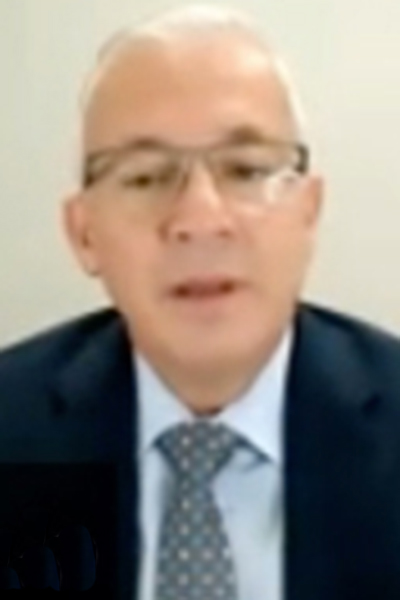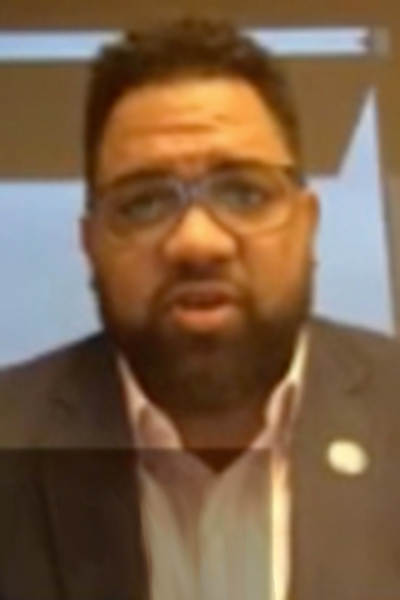
Before the COVID-19 pandemic, more than 1.5 million adults in the US used supplemental oxygen, with worldwide demand expected to grow significantly in the next 5 years, not counting potential increases of those COVID-19 patients battling long-term effects.
The inaugural Erin Popovich Honorary Lecture, The Erin Popovich Endowment: The Role of Doctor and Patient in Chronic Lung Disease Education and Oxygen Therapy, on Wednesday, October 21, examined the financial, bureaucratic, and educational barriers to therapy and the patient-physician partnership needed to overcome those barriers. The session is available for on-demand viewing on the virtual CHEST 2020 meeting platform through January 18, 2021, for registered attendees.
Jairo Melo, MD, FCCP, pulmonary and critical specialist at Methodist Hospital in San Antonio and member of the CHEST Foundation Board of Trustees, said that the expense of oxygen makes it difficult for so many people to get this critical treatment, so the Popovich Endowment and CHEST Foundation have joined other organizations in finding ways to improve affordability. Dr. Melo, who cared for Popovich while she battled interstitial lung disease, quoted a New York Times story from earlier this year that summarized the current oxygen availability struggles: “Even the right to breathe depends on money. In much of the world, medical oxygen is expensive and hard to get—a basic marker of inequality both between and within countries.”
Dr. Melo emphasized that even patients with the financial means to access oxygen therapy face significant barriers to optimal care:
- Delayed response: Not enough patients are being screened for oxygen therapy, and for those screened, it may take weeks to get the oxygen from the time the prescription is written.
- Education and technical support: Many times, patients receive the oxygen but don’t receive critical information.
- Inadequate oxygen supplies: Many times, orders end up providing inadequate oxygen flow that doesn’t adapt to the patient’s needs.
- Portability, weight, and capacity: Physicians need to understand the patient’s capabilities to move with their oxygen supplies.
- Safety: Providers often don’t understand how the systems work, which adds stress to the patient.
“We need to go through red tape to get the right oxygen,” Dr. Melo said. “One of the missions of the CHEST Foundation and the Popovich Endowment is we need to work on the clarity of orders. We cannot accept ‘scribble prescriptions,’ and we cannot delegate how we order oxygen in our office and hospitals. We, as physicians, need to understand how to write the order.”
Beyond the patient-physician connection, optimizing access to oxygen requires working for technological improvements to make the portability, transporting, and monitoring of oxygen therapy easier, Dr. Melo said. Physicians also need to advocate for oxygen to be classified as a medication instead of a device so that policy makers and payors understand how important oxygen therapy is and unlock ways to make it more affordable for patients.
Clinicians need to learn how to do that advocacy, but Dr. Melo said that the education also must include understand the oxygen process and the entire patient experience, including patient education when it comes to equipment, safety, and pulmonary rehabilitation.
“The most important thing is this conundrum of getting access to oxygen, and that’s what we’re dedicating our endowment to,” Dr. Melo said.

CHEST Foundation Director Rudy Anderson, CAE, discussed the Foundation’s ongoing efforts in support of improving access and outcomes for those needing oxygen therapy. Among its many efforts, the Foundation works to support finding solutions to the priorities of the CHEST Health Policy & Advocacy Committee: Home mechanical ventilation, oxygen delivery, oxygen education, pulmonary rehabilitation, and tobacco and vaping issues.
“These cross many disease states that you as clinicians see and treat every day, but these also are longstanding issues that have caused inequities and made health care worse for many within our community,” Anderson said.
Anderson also detailed the Oxygen Toolkit, developed through the Popovich Foundation and designed by the CHEST Foundation to help both patients and providers navigate the myriad of issues involved in getting the right resources lined up for patients requiring oxygen therapy. The online version of the toolkit is available at chestfoundation.org, and physical versions of the toolkit can be custom ordered, as well, by contacting the Foundation by email.
The toolkit goes a step beyond what a typical educational toolkit provides, Anderson said.
“Not only do we have those pieces where they can get further educated about oxygen, travel, and greater access in terms of what oxygen equipment [is needed] for them, but we put in there great information and tidbits from other patients who we asked, ‘What would you have liked to have known before going through it?’ ” Anderson said.





